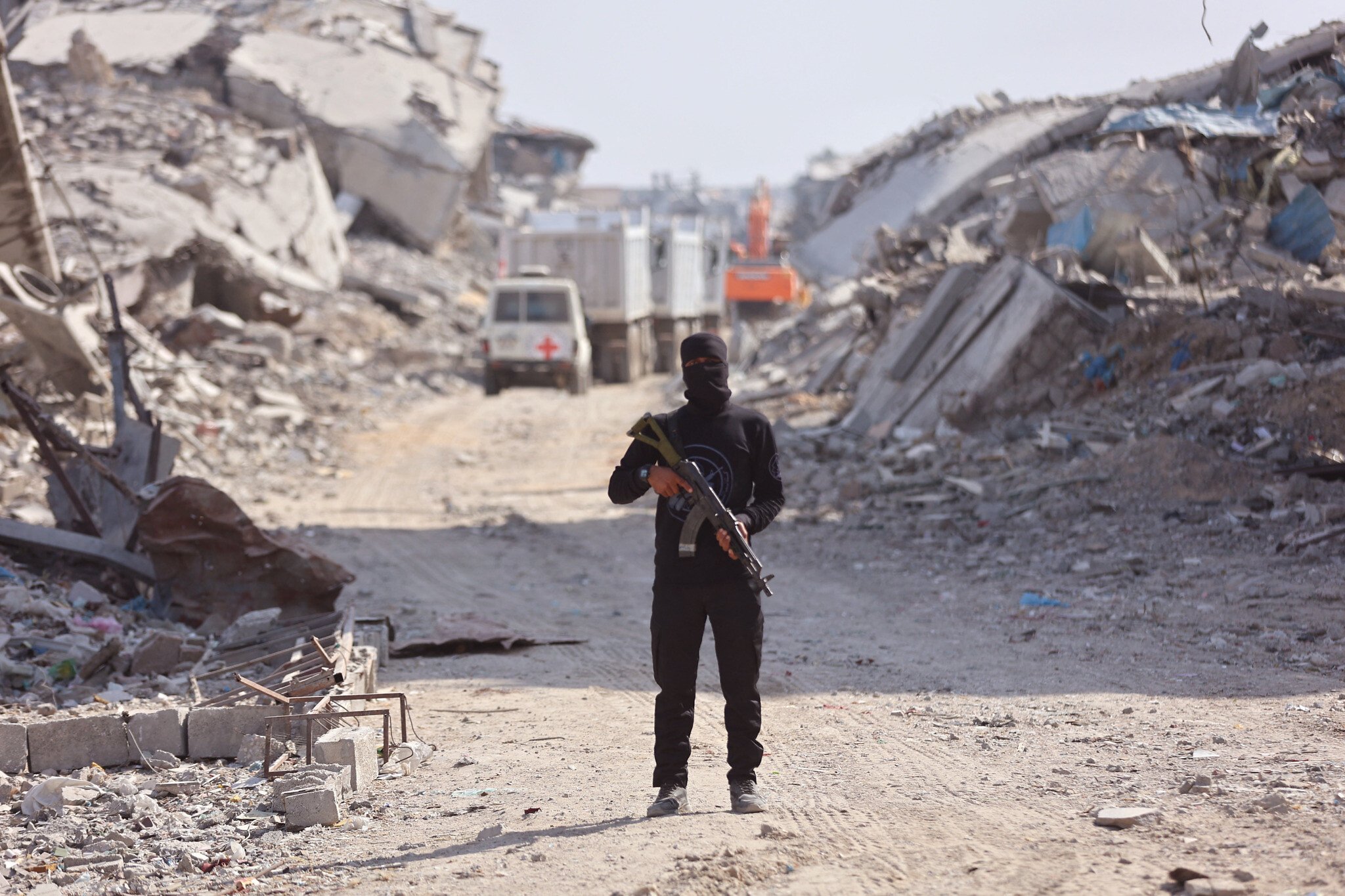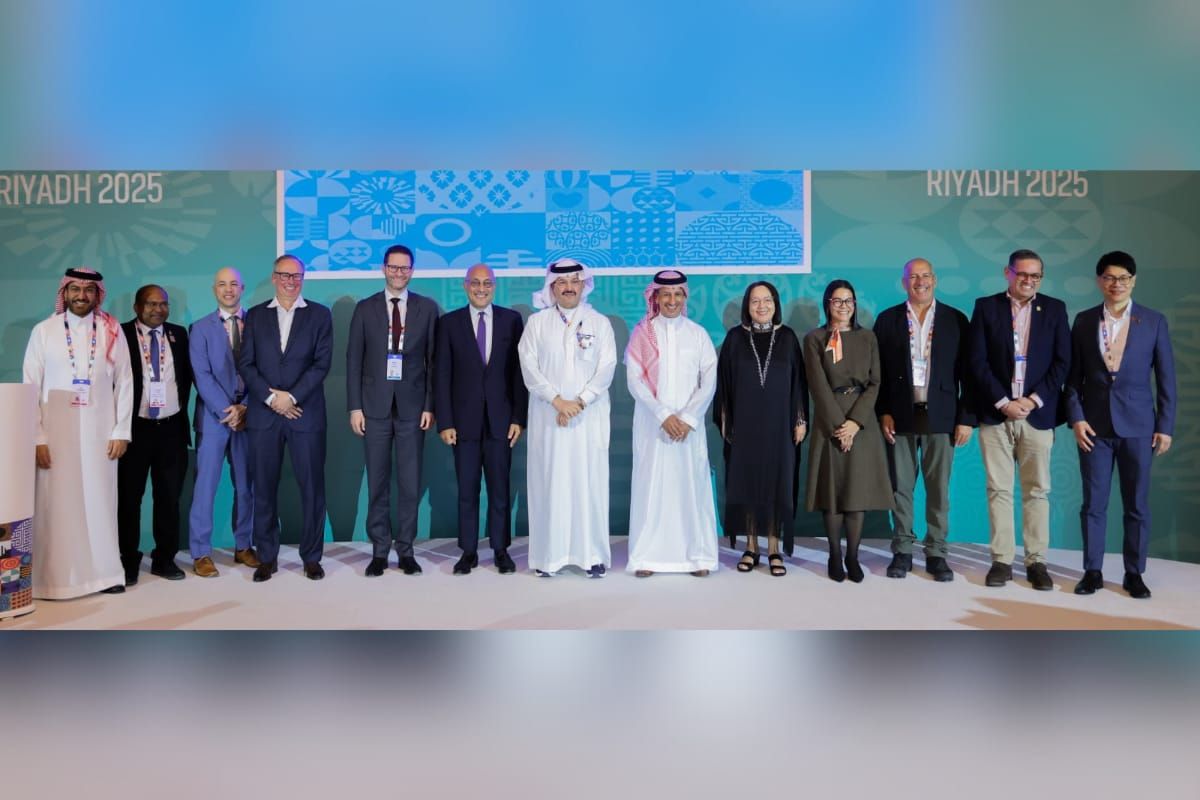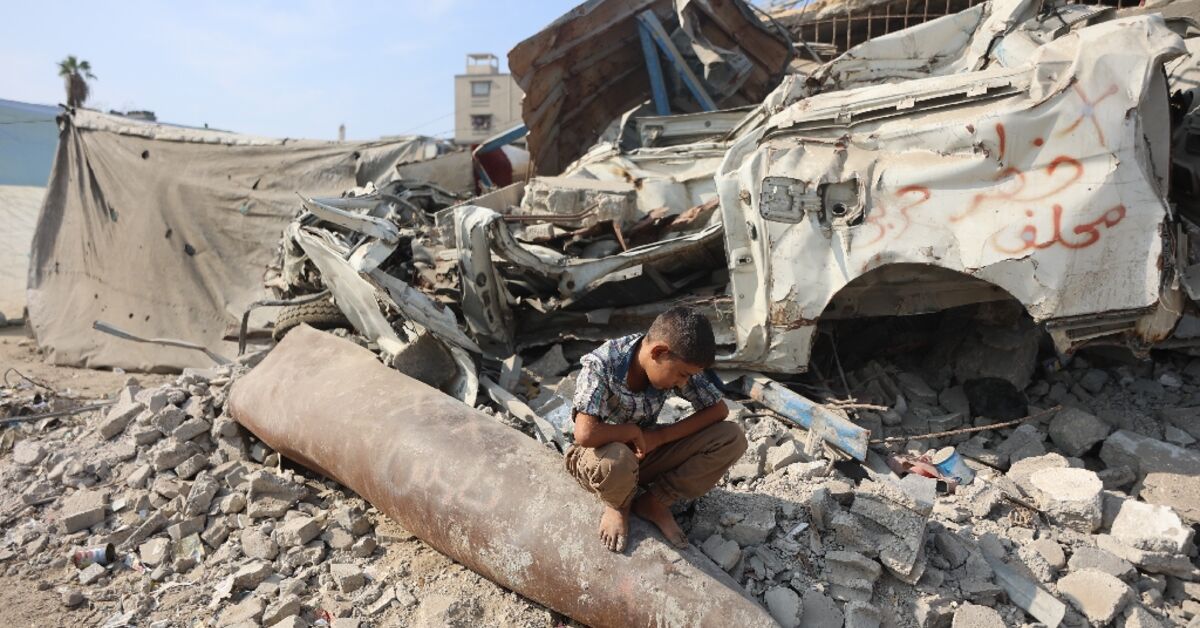The United Nations Security Council (UNSC) on Monday adopted a US-backed draft resolution outlining US President Donald Trump’s plans for Gaza’s future, including a line that envisions a future Palestinian state.
The vote came down to 13 members in support, and two abstentions from Russia and China in the 15-member UNSC. There are five permanent members and 10 rotating members. Israel was allowed to sit in on the meeting, but could not vote.
Israel had made a last-minute push at the UN to have the US reverse its language away from any mentions of Palestinian statehood, even if it’s merely aspirational.
The fact that the US ultimately maintained the language on Palestinian statehood signals that the Trump administration is serious about maintaining its cordial ties with key Muslim allies, despite Israel’s opposition.
Washington did not initially include a reference to Palestinian self-determination, but made the change to appease Muslim and Arab nations, which it hopes will provide troops for an “International Stabilisation Force” in the enclave.
New MEE newsletter: Jerusalem Dispatch
Sign up to get the latest insights and analysis on
Israel-Palestine, alongside Turkey Unpacked and other MEE newsletters
The resolution, now dubbed UNSC 2803, says that “conditions may be in place for a credible pathway to Palestinian self-determination and statehood” if the Palestinian Authority (PA) undergoes reforms, and Gaza’s redevelopment “has advanced”.
In Israel, where Prime Minister Benjamin Netanyahu has come under fire from his allies for not taking action against a slew of western nations that recognised Palestine earlier this year, he gave his cabinet assurances on Sunday that he remains firmly against a Palestinian state.
A day later, Israeli National Security Minister Itamar Ben-Gvir said PA officials ought to be killed if the UN approves language around statehood, The Jerusalem Post reported.
“If they accelerate the recognition of the Palestinian terrorist state, and the UN recognises a Palestinian state, targeted assassinations of senior Palestinian Authority officials, who are terrorists for all intents and purposes, should be ordered,” he said.
The Palestinian foreign ministry swiftly demanded accountability for the statement, calling it “systematic incitement”.
Officially, both Israel and the US have maintained a policy on paper since the early 1990s that would see them work toward a two-state solution for Israel and Palestine. But Netanyahu’s far-right coalition, as well as the far-right Trump administration, has effectively dropped that notion entirely.
Gaza governance
The mention of aspirational statehood is just one line in the widely criticised US-backed resolution outlining plans for Gaza’s governance and security after two years of Israel’s genocide.
There has been no major credible alternative that is also backed by Muslim and Arab states, which are eager to show support for a US president who has branded the so-called “peace plan” with his name.
On Friday, they released a joint statement urging “swift adoption” of the resolution.
The signatories were Qatar; Egypt; the United Arab Emirates; Saudi Arabia; Indonesia; Pakistan; Jordan; and Turkey.
They also previously made it clear that they want the international body to give them the mandate to send peacekeeping forces into Gaza.
The US resolution builds on Trump’s 20-point plan for the enclave.
It says the security force will report to a so-called “board of peace” chaired by Trump.
The US has also established a military coordination centre in Israel to oversee the ceasefire, though Israel has already breached that ceasefire more than 250 times, Hamas said.
An international stabilisation force deploying to Gaza would be similar to the one operating in Haiti. The force combating armed groups there is Kenyan-led and US-supported. Although it has a UNSC mandate, its command and control do not report to the UN secretary general.
Peacekeeping operations run explicitly by the UN are nicknamed the “blue helmets” – in a nod to the institution’s colour. UN peacekeepers operated in Bosnia in the early 1990s, in Mali in the 2000s, and are currently in southern Lebanon.
The British-Swedish NGO Law for Palestine has slammed the US resolution and said it includes no Palestinian participation in determining their own future.
“The very notion of imposing a foreign council – namely, the Board of Peace – is not intended to end the unlawful occupation or realise the inalienable right of the Palestinian people to self-determination,” the statement said.
“Rather, it seeks to manage them under occupation and even control the international aid provided to them, stemming from a colonial assumption that the Palestinian people require international trusteeship rather than the self-governance guaranteed by international law and decades of UN resolutions,” the organisation added.
“The Plan was formulated with the exclusion of the Palestinian people and against the backdrop of vast asymmetries in power.”
Russia had put forward its own resolution last week that it said would “not contradict the American initiative”, but rather build on it by noting that Gaza and the occupied West Bank should form a future Palestinian state.
But getting Israel to abide by the ceasefire at all is a wholly Trumpian effort, and few countries may now be willing to risk upsetting his landmark regional achievement.
Irony
Just the fact that the Trump administration has had to turn to the UN is laden with irony, given its hostility to the organisation.
Their pivot towards the international body marks a victory for Arab and Muslim states, which do not want to be viewed as occupiers on behalf of Israel.
“For the force to be seen as legitimate by the Palestinians, it must not be perceived as contracted by Israel,” Jean Marie Guehenno, former UN undersecretary general for peacekeeping operations now at Columbia University, previously told MEE.
A Turkish source who previously spoke with MEE said Ankara would like the mandate to allow for greater UN supervision over the international stabilisation force.
“It is presented as a UN-backed initiative, but the UN doesn’t actually have any role in it,” the source explained.









